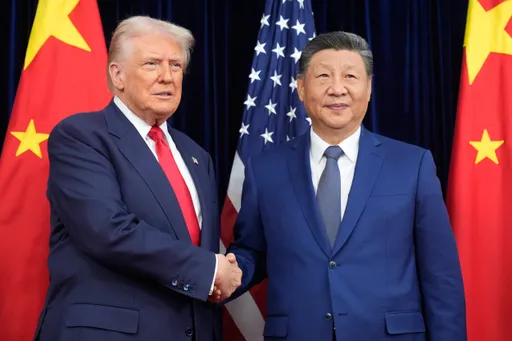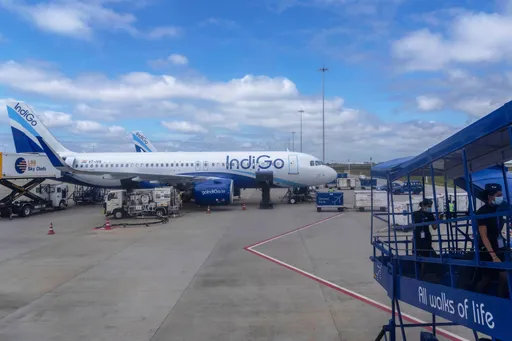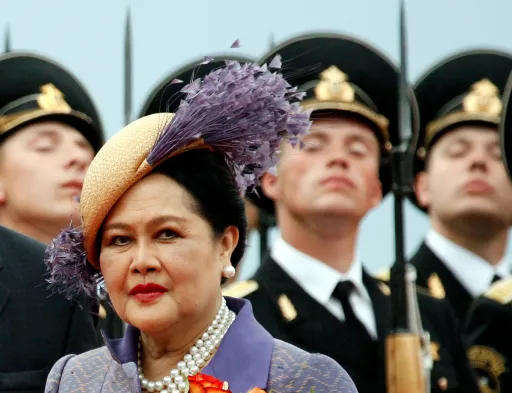By Sylvia Chebet
Wealth disparity is a hot-button issue worldwide, fuelled as much by perception as by stark numbers. But what statistics unemotionally project is often insightful enough to reshape people's understanding of the known reality.
The 2024 Africa Wealth Report reveals that there are currently 135,200 high net-worth individuals (HNWIs) with a liquid investable wealth of US $1 million or more living in Africa, besides 342 centimillionaires worth $100 million or more and 21 dollar billionaires.
The findings contain at least five markers that provide startling insights into wealth distribution on the continent.
Africa's big 5
Only five countries account for about 56% of the continent's dollar millionaires. "That's kind of startling because there are 54 countries in Africa, and five of them are holding over 50% of the continent's wealth," Andrew Amoils, head of research at New World Wealth, tells TRT Afrika.
An HNWI is someone with over a million US dollars in liquid investable wealth, mainly consisting of listed company holdings and cash holdings. Amoils reckons that's "quite a high bar in terms of getting into that status".
Despite a challenging past decade, with a 20% decline in its millionaire population, South Africa remains home to over twice as many HNWIs as any other African country. According to the latest data, it has five billionaires, 102 centimillionaires, and 37,400 millionaires.
Egypt is second with seven billionaires, 52 centi-millionaires and 15,600 millionaires. Nigeria is third with 8,200 HNWIs, followed by Kenya (7,200) and Morocco (6,800).
Among the cities, South Africa's Johannesburg is the wealthiest in Africa, with 12,300 millionaires, 25 centi-millionaires, and two billionaires. Cape Town, also in South Africa, comes second with 7,400 millionaires, 28 centi-millionaires, and a lone billionaire.
Cairo (7,200 millionaires), Nairobi (4,400), and Lagos (4,200) also stand out as centres of affluence and future pockets of prosperity.
According to Amoils, countries with more HNWIs also tend to have a larger middle class. "Those two wealth bands are often linked," he explains. "If you have wealthy people, many of them will be business owners. So, they will employ people."
Conversely, if a country doesn't have many wealthy people, "it's either because of widespread poverty or the government holding most of the wealth".
Billionaires at large
The world has 54 African-born billionaires, but only 21 still live on the continent.
Another startling finding is that some countries have more billionaire residents than those born there. For instance, Monaco has about 25 resident billionaires, but only a few of them were born in that country.
South African-born Elon Musk, one of the wealthiest people in the world with $193.0 billion in cash and assets, is among those who left the continent and settled in the US.
"If a well-paid executive making a million dollars a year leaves a country, the person can be replaced. But if it's a billionaire who runs a big company and then the person leaves, moving that business somewhere else, we are talking about a much bigger impact," says Amoils.
When they leave, billionaires create a colossal job and wealth creation void. "Wherever they go, the opportunities go with them," says Chidinma Okebalama, one of the experts involved in the research.
Nigerian exodus
According to New World Wealth, around 300 HNWIs have been leaving Nigeria each year over the past half a decade.
Amoils notes that ten years ago, Nigeria had over twice as many millionaires as Kenya, but the two countries now have almost a similar number. "Besides migration, there has also been a depreciation of the naira, going down by about 80% to the US dollar," he says.
The naira hit a historic low around February this year, reaching 1,900 to a dollar but has gained more than 40% in recent weeks.
"There has been currency depreciation in Kenya as well, but it hasn't been as dramatic as in Nigeria," says Amoils. We did pick up some millionaire migration from Kenya, albeit small. It's unlike migration from Nigeria, South Africa, and Egypt."
Kenya's millionaire numbers dropped from about 8,500 a few years ago to 7,200. The country still doesn't have a dollar billionaire, while Nigeria boasts three.
The latest figures indicate that approximately 18,700 HNWIs have left Africa in the past decade, finding their havens in some of the world's fastest-growing markets.
Mauritius on a roll
Mauritius, which ranks sixth on the list of Africa's wealthiest countries, has recorded the highest wealth growth rate over the last ten years, with the number of HNWIs rising from about 2,800 a decade ago to more than 5,000.
"That's a product of vast economic growth and strong inward millionaire migration. Many wealthy people have moved there," Amoils tells TRT Afrika.
This is also attributed to a favourable tax regime and political stability, both of which global investors find attractive.
Mauritius is projected to experience a remarkable 95% growth rate, positioning it as one of the world's fastest-growing wealth markets. Namibia is also poised for growth, with its HNWIs forecast to increase 85% by 2033.
Other countries expected to experience an impressive millionaire growth rate of 80% and above over the next decade include Morocco, Zambia, Kenya, Uganda, and Rwanda.
Quantum leap ahead
The total investable wealth currently held on the African continent amounts to $2.5 trillion, while its millionaire population is set to rise by 65% over the next ten years, the new study indicates.
"We expect strong millionaire growth in certain sectors such as fintech, eco-tourism, business process outsourcing, software development, rare metals mining, green tech, media and entertainment, and wealth management," says Amoils.
But political instability, currency depreciation, and unattractive fiscal policies and tax regimes could turn the tide.
In South Africa, financial and professional services are currently the leading sectors for millionaires to explore.
"Around 40% of South Africa's HNWIs would be in those sectors. Most wealthy people in SA are either lawyers or chartered accountants by background," Amoils points out.
When it comes to future millionaire magnets, Cape Town is projected to overtake Johannesburg and become Africa's wealthiest city by 2030.
Analysts project that Rwanda's Kigali, Namibia's Windhoek and Swakopmund, Kenya's Nairobi, and Morocco's Tangier and Marrakech will also enjoy more than 85% increase in the number of millionaires over the next ten years.
➤Click here to follow our WhatsApp channel for more stories.




















